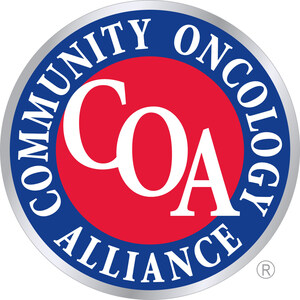Pace of Community Cancer Clinic Closures Increasing: An Escalating Trend
Weakened U.S. Cancer Care Delivery System Persists
WASHINGTON, March 31, 2011 /PRNewswire/ -- According to an updated Practice Closings Report released today by the Community Oncology Alliance (COA), oncologists around the U.S. are closing offices at a rate which has accelerated since January 2010.
Specifically, 199 community cancer clinics in 42 states have closed, most often due to financial pressures from severe cuts in Medicare reimbursement for cancer care. Another 426 have been acquired by hospitals or another entity or have merged with another cancer care provider. 369 practices report they are struggling to pay bills and/or stay open.
"Cancer survival has increased due to early detection and better, more targeted treatments. Our concern is that those advances are being negated as we see patients suffering because they cannot access affordable care in their communities," said David Eagle, MD, president of the Community Oncology Alliance (COA) and partner in Lake Norman Oncology, Mooresville, North Carolina. "Closings are due to two factors. First, cuts to Medicare reimbursement for cancer care have occurred every year since 2004. Second, more private payers are following the Medicare reimbursement system and its pattern of payment cuts."
In the past few years, more than 1,000 clinics nationwide have experienced some kind of severe negative impact, including clinics that have closed their doors, continue struggling financially to pay bills to operate, are forced to send all of their Medicare patients elsewhere for treatment, or have been acquired by hospitals or other entities.
As a result, a growing number of cancer patients may be unable to receive care in their communities and may not be able to travel the distances required to get treatment. Rural practices and those with higher proportions of Medicare and Medicaid patients are particularly hard hit. Four out of five U.S. cancer patients are treated in the community setting, and approximately half of all U.S. cancer patients are Medicare patients. A study by Avalere Health showed that in 2008 Medicare covered only 57% of the cost of delivering chemotherapy.(1)(2)
"During the last six months we have seen a dramatic increase in consolidation, with a 40.6% increase in the number of practices being acquired or merged into hospitals," said Ted Okon, executive director of COA. "This has been reported to increase the cost of cancer treatment for payers and patients. It is a reversal of the very progress made over the last thirty years as cancer care moved from an inpatient to outpatient service and the cost of care per patient decreased."
H.R. 905, a bipartisan bill recently introduced in Congress, proposes to amend title XVIII of the Social Security Act to ensure more appropriate payment for drugs and biologicals under Part B of the Medicare Program by excluding customary prompt pay discounts extended to wholesalers from the manufacturer's Average Sales Price (ASP).
"This bill is an essential component for support of community cancer clinics, all of which need quick and fair reimbursement for millions of dollars per month in chemotherapy drug outlays," continued Dr. Eagle. "It will provide welcome stability to many community clinics that may be on the brink."
About Community Oncology Alliance
Formed in 2003 in response to the Medicare Modernization Act, COA is a non-profit organization dedicated solely to community oncology. COA was founded by community oncologists to advocate for patients and providers in the community oncology setting, where four out of five Americans with cancer are treated.
Currently, COA is working with the Congress in providing proactive solutions designed to protect the viability of the nation's cancer care delivery system and patients' access to quality, affordable cancer care. The cancer death rate in the U.S. has declined due to earlier detection, the quality of treatment, and the accessibility of cancer care. However, according to the American Cancer Society, men still have an approximately one in two lifetime risk of developing cancer, with a risk of one in three for women. For more information, please visit www.communityoncology.org.
(1) NCI Community Cancer Centers Program (NCCCP). Pilot Program Summary. 2007
(2) Avalere Health. Providing High Quality Care in Community Oncology Practices: An Assessment of Infusion Services and Their Associated Costs. February 2010
SOURCE Community Oncology Alliance
WANT YOUR COMPANY'S NEWS FEATURED ON PRNEWSWIRE.COM?
Newsrooms &
Influencers
Digital Media
Outlets
Journalists
Opted In





Share this article